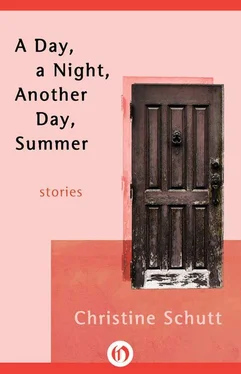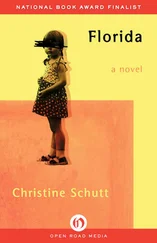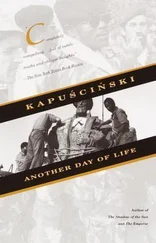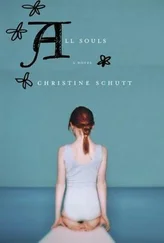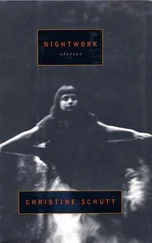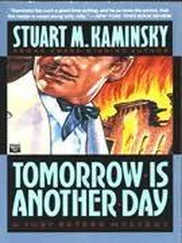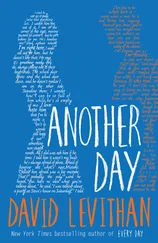Our mother, in her room, goes on and on about it, how she isn’t good with numbers but she will try. She wants to play. Mother wants to go out again, please. She wants to try. “I’ll be good, I’ll be good, I’ll be good. I want to get out of this shit-hole place. Jesus!” And his name, the way she says it, comes out sorrowful and red.
Then Agnes is not sixteen anymore but a woman with dead babies — only dead babies, which is surely what she means when she talks of the dead horses. Sets of silver and dishes, named cars, Italy long after she has thrown away her brushes, our mother does not ask anymore where it is packed.
A lot, of course, has been sold — had to be. Our mother’s daddy is dead; the trust fund he left her is nearly depleted.
Our mother can’t tell us apart on the phone, but she knows our voices. She remembers our names; and when we answer to them, she cries that she is ready. She wants to go back to the lake, to Netta, of course, and Daddy.
“Please,” she says, “it’s time.”
Our mother’s incessant cries, we can hear them when we are not on the phone. We can smell her when the nurses lift her into bed. We don’t need Faye to tell us. We can see, we can see Agnes; she is a girl, and then for a long, long time she is not.
1960
Her arms belonged to a Hattie, potato-white, fat-puckered, floury-fat arms, which when she lifted them to put away the jam smelled sour. Hattie was a sour-smelling cook, finished work and in a coat — no sweater! Unbuckled boots and too-small scarf despite the cold. Outside in a running car Hattie’s husband was waiting. He was the one to drive her. These were the baking days, those sighing days — less light and nearing holidays — when he brought Hattie here in the morning gloom and took her home, darkling.
Hard to see under the bill of his cap, a farmer’s cap, and he, a farmer, smelling of mucked stalls and cheese. We had smelled him before. Mr. Rassmusen, Elmer Rassmusen as he was called by Netta, whose house it was where Hattie baked. “Mr. Rassmusen is here, Netta!” from us, waiting for the cookies to cool, the awful-sounding cookies that tasted so good: Springerle. “Does Mr. Rassmusen get any?”
Hattie says, “He has his heart to think about.” Phony eggs and no bacon are what he has for breakfast now, poor man! They sold their chickens — what’s the use? Hardscrabble is the word Frannie thinks of, and the cornstalks’ yellow clatter in the wind when the wind blats through, as it mostly does, in our country in the dead of winter. What a phrase! Don’t use it. The dead go nowhere; we have dug them up.
(Mother has some babies in the ground, but I think they do not sleep.)
Hattie says, “Be careful you don’t burn your tongues,” and she shuffles to the car in her unbuckled boots. The path is all ice and she is stooped against falling.
The thought of her bare arms beneath her rough coat makes us itch. Let’s never be poor!
Poor Hattie was farm-poor and ugly, ugly and poor as the old women Netta visited. Netta took us to Miss Pearl’s, whose cookies made us sick. “No thank you,” we said, polite girls and sisters, born wide years apart but matching. Miss Pearl, the dressmaker, pinned us for approaching birthdays; but March was not as close as Netta thought. Uncertainties, instructions, moments of clarity and surprise, bright hurts.
(My mother’s face in a mirror we once shared first informed me of beauty.)
Frannie is oldest; I am youngest. A sister in between would be nice — Frannie says. Frannie says it is sad about our brothers.
“Where were you girls?” from Netta, already thinking of next year’s Christmas, needling sequins to sew on a saddle. The camel is for the wise men on their journey. Across the desert! Under the stars!
Netta didn’t know about the dog, how he plashed across the river and came home steaming. She didn’t know how long we had played outside but that Hattie was here, yes; Netta said she could smell it, and we could, too: the onion odor of the woman mixed with butter and almond.
(Mother, I remember, unbuttoning even as she ran up the stairs, crying, “I can’t stand myself!”)
One day the pocky rain beat away the snow.
We made toffee without Hattie in the kitchen or Netta to boss us. The toffee was oversweet and hot and dripped off a stick — from the garden? Then our birthdays passed and we were in the garden. We were shoeless, sockless, and putting on a play that Frannie had directed because it was her idea in the first place.
Frannie’s flaxen braids went past her waist so she could sit on them and play Rapunzel.
(Did I mention that our mother was an actress?)
Hattie was not a woman of expression or patience, but she played our audience and gruffed, “What girls you are! What made you think of this?”
Sometimes her surprise surprised us, as when we piled what we picked out, which she then scolded us to eat. But who likes bitter rind in jelly? And why not swig vanilla? The way it smelled, we thought it would be sweet!
(“She gets it from her mother,” they say about me.)
Frannie is Frannie and good, smart, responsible, those stout terms grown-ups use on us wearing their accurate faces. Hattie does not have many faces. With her it’s a scowl or a smile…and she looks like…Netta says, “Eleanor Roosevelt!” Hattie, apron off and in her everyday clothes, looks like Eleanor Roosevelt, top heavy, jowled, a preposterous hat. Her teeth, too — Hattie’s — are made out of wood and wooden yellow.
Netta says to us, “Be thankful for what you’ve got.”
“I am!” Frannie says, and I say, “We are!”
We are, we are, we are, we are everywhere running through the house, shooed out of rooms. “Go outside or watch TV!” In the old war footage the women wear scarves and rush across rubble.
“Aren’t you glad you weren’t born then?” Netta asks because she was alive then. She lived through the war although not as meanly; nevertheless, she says, “Really, aren’t you glad you weren’t born then?”
“We are!” but we like to pretend we are the dispossessed, and we pick at Hattie’s coffee cake to make it last the war. The snow blows up and sideways, and what was close outdoors is blurred in so much weather. Will Mr. Rassmusen drive through it? The whiteness squalls across the fields.
(I miss my mother.)
Stranded in the country! Even the sander couldn’t get through to us, not to mention Mr. Rassmusen. Hattie said, “His heart is old…I hope he knows enough to stay at home.” By then the phones were down and the deep house groaned. The sound was the sound of ice settling over the lake, and we ran away from what we heard, ran throat-hurt through our Netta's house. The magical house, the big house, the house I wanted as my own. The doors when opened huffed attic air, and we danced across the ballroom and slid to the windows and saw snow-blind-close trees. Who could get near us?
(In another house I put my mouth over Mother’s and cried down to a baby, “Can you hear me?”)
Hattie is shouting into the dead phone so Mr. Rassmusen might hear. “See how the roads are tomorrow. Don’t drive!” This big, ugly woman is in tears. Thirty-five years come June and she can count on her hand the nights apart from Mr. Rassmusen. They met when they were not much older than we are. Their daddies both farmed. But it’s never been dull, farm life. Farm life is full of incident: bladed equipment, animals, blood.
Tonight Hattie’s story is the fox! Found midwinter, his flattened, frozen carcass breaks in half when P.J. bats with it. That P.J.! He came to collect Hattie once and walked in calling, “Ma!” There wasn’t but the one car and Hattie heeding to it.
Читать дальше
